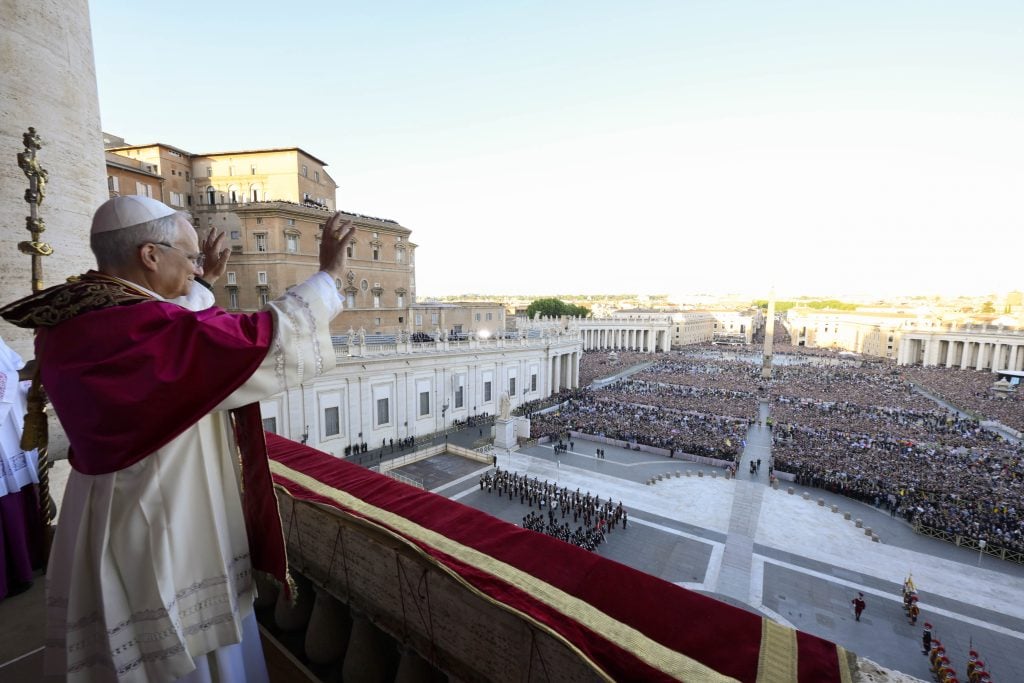History was made on Thursday as American Cardinal Robert Francis Prevost was elected the next pope, choosing the name Pope Leo XIV. The 69-year-old Chicago-born prelate becomes the first pope from the United States, marking a new chapter for the Catholic Church just weeks after the death of Pope Francis.
Though details about Leo XIV’s views on LGBTQ+ issues remain sparse, early commentary and past remarks suggest a cautious approach that may not mirror his predecessor’s more publicly pastoral tone. Still, advocates are watching closely for signs of the direction he’ll take.
A Historic First: An American Pope
Pope Leo XIV’s election broke centuries of tradition, making him the first pontiff hailing from the United States. The former cardinal, known for his administrative roles and theological scholarship, brings with him both expectation and curiosity — particularly from American Catholics and LGBTQ+ faithful who have followed the Church’s evolving stance under Francis.

Taking the name “Leo” raised eyebrows among church historians and social justice advocates alike. Pope Leo XIII, one of the most consequential Leos, was known for championing workers’ rights and calling for justice amid the upheavals of the Industrial Revolution.
“For Pope Leo XIV to choose that name signals a potential commitment to justice and dialogue,” said Michael O’Loughlin, executive director of Outreach, a resource organization supporting LGBTQ+ Catholics. “It echoes Pope Francis’ spirit of reaching those on the margins.”
A Complicated LGBTQ+ Legacy
Despite the symbolic nod to progress, Pope Leo XIV has made comments in the past that raise concerns within LGBTQ+ circles. During a 2021 bishops’ meeting, he reportedly lamented how Western media promotes “sympathy for beliefs and practices that are at odds with the gospel,” explicitly referencing same-sex couples and alternative family structures, according to The New York Times.
While those remarks suggest a more conservative stance,
of cautious optimism. “We didn’t know what Pope Francis’ approach to LGBTQ+ Catholics would be in 2013 either,” he said. “And his papacy became a beacon of hope for many.”
Social Media Shade: The JD Vance Connection
If there’s one thing the internet agrees on this week, it’s that Pope Leo XIV isn’t a fan of U.S. Vice President JD Vance. In a resurfaced post from before his papal election, Leo publicly rebuked Vance’s attempts to use Catholic teaching to justify harsh immigration policies, stating, “JD Vance is wrong: Jesus doesn’t ask us to rank our love for others.”
Me, seeing all the times our new Pope has dragged this administration AND JD Vance. pic.twitter.com/kR5pGymF4W
— celia (@_celia_bedelia_) May 8, 2025
This new Pope had me at “JD Vance is wrong” pic.twitter.com/IBVh6c5vGp
— Evan (@daviddunn177) May 8, 2025
The post sparked a firestorm of viral commentary. “This new Pope had me at ‘JD Vance is wrong,’” one user wrote on X. Others joked that Vance, who only converted to Catholicism in 2019, had now been snubbed by two popes in a row — with Pope Francis also previously publishing a letter contradicting Vance’s theological framing.
Looking Forward
While the tone and direction of Pope Leo XIV’s papacy remain to be fully seen, the early signals are a blend of traditional values and justice-rooted messaging. LGBTQ+ Catholics, particularly those in the U.S., are watching closely, balancing skepticism with a spark of hope.
“As a gay Catholic myself, and one who lived for a decade in Pope Leo’s home city of Chicago,” O’Loughlin said, “I’m hopeful for the Church and offering prayers for the new pope.”



